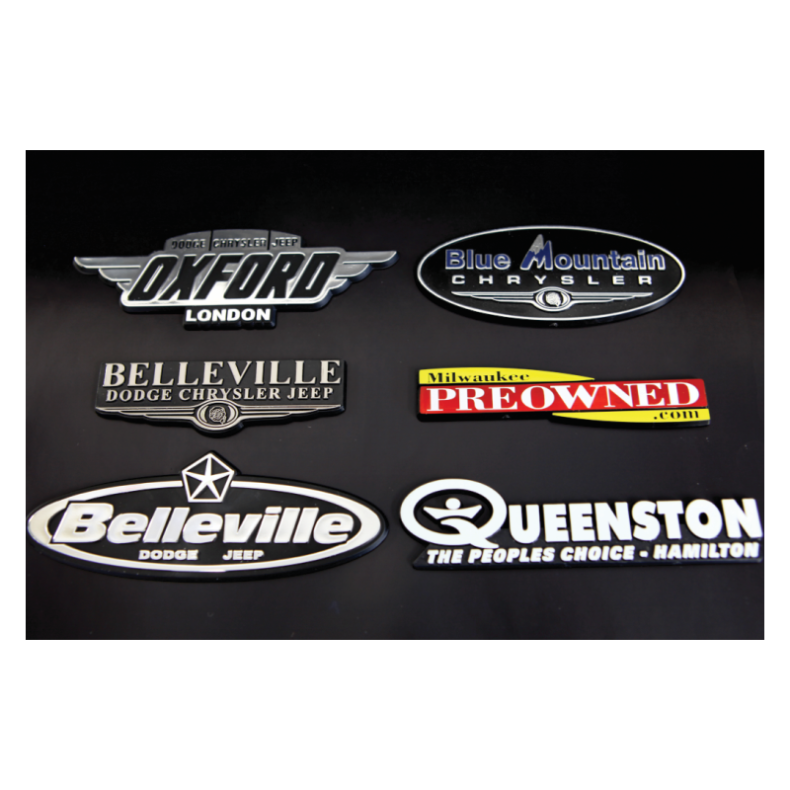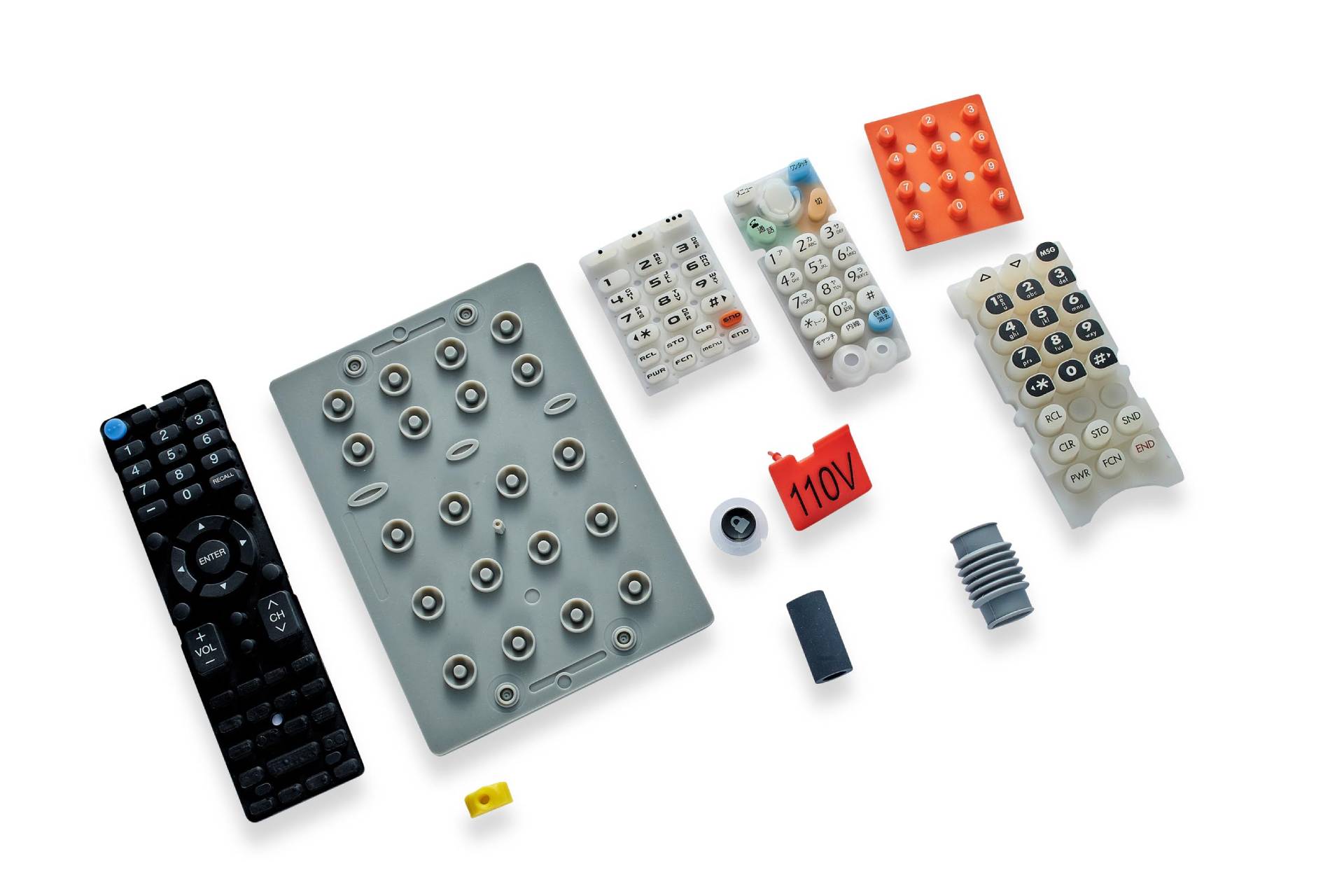A Buyer’s Guide to Choosing the Right Plastic Nameplates for Your Needs
A Buyer’s Guide to Choosing the Right Plastic Nameplates for Your Needs
Blog Article
Exactly How Plastic Nameplates Are Made: A Comprehensive Overview to Their Manufacturing Refine
The manufacturing of plastic nameplates includes numerous exact steps, starting from the selection of appropriate products to the final complements. Each stage is vital, making sure the item meets specific requirements for longevity and appearances. Numerous production methods play a considerable duty in crafting these nameplates. Comprehending these processes can clarify the complexities behind what might feel like a simple item. What factors add to the high quality and personalization of these nameplates?
Comprehending Plastic Products Utilized for Nameplates

The Design Refine: From Idea to Model
The design procedure for plastic nameplates starts with a clear idea that overviews the general creation. Developers work together with clients to define the objective, design, and details needs of the nameplate. This first phase consists of brainstorming sessions, mapping out ideas, and choosing shades and font styles that straighten with branding goals.Once the concept is established, developers utilize computer-aided style (CAD) software program to produce comprehensive digital depictions. These prototypes enable visualization and adjustments before progressing. Comments from stakeholders is essential throughout this stage, as it helps fine-tune the design to fulfill expectations.After settling the digital prototype, a physical version may be generated, frequently with techniques like 3D printing. This tangible depiction allows further analysis of appearances and performance. Generally, the style procedure is a crucial action that lays the structure for the reliable manufacturing of top quality plastic nameplates.
Cutting and Shaping the Plastic
In the cutting and forming stage of plastic nameplate manufacturing, the selection of products plays an essential function in figuring out the final item's quality and sturdiness (Plastic Nameplates). Numerous accuracy cutting methods, such as laser cutting and CNC machining, assurance that the plastic is formed with precision and uniformity. This combination of mindful product selection and progressed reducing methods is essential for creating top quality nameplates

Material Choice Process
Picking the right product is crucial for creating high-quality plastic nameplates. Numerous sorts of plastics are readily available, each offering unique benefits and attributes. Common choices include acrylic, polycarbonate, and PVC. Polymer is preferred for its clearness and UV resistance, making it suitable for exterior applications. Polycarbonate, known for its longevity and impact resistance, is suitable for environments that require improved defense. PVC is usually chosen for its cost-effectiveness and versatility in design. The selection procedure additionally thinks about variables such as color, surface area, and thickness coating, which can greatly influence the final appearance and capability of the nameplate. Ultimately, the chosen product must line up with the planned usage and visual goals of the plastic nameplate.
Precision Trimming Methods
While selecting the ideal material lays the groundwork, accuracy reducing techniques play a necessary function in forming the plastic nameplates into their last forms. Various techniques, consisting of laser cutting, CNC milling, and pass away cutting, are used to attain precision and consistency. Laser reducing utilizes focused light to generate complex layouts and clean sides, perfect for complex patterns. CNC milling provides convenience by removing excess product with accuracy, accommodating various densities and shapes. Pass away reducing, on the various other hand, allows for mass production of uniform pieces, boosting performance. Each method is chosen based upon the design specifications and the desired coating, ensuring that the last item meets quality standards and customer assumptions while maintaining sturdiness and aesthetic charm.
Printing Strategies for Modification
Just how can manufacturers accomplish accurate and vivid styles on plastic nameplates? The response hinges on various printing methods customized for personalization. Digital printing has obtained appeal due to its capacity to create elaborate designs and high-resolution photos directly onto plastic surface areas. This technique permits fast turn-around times and marginal arrangement costs, making it ideal for short runs and customized orders.Screen printing stays an additional extensively used technique, particularly for larger quantities. It involves developing a stencil and applying layers of ink, resulting in rich colors and durability. UV printing, which utilizes ultraviolet light to treat the ink, is likewise efficient, giving outstanding attachment and resistance to fading.Additionally, pad printing offers adaptability for irregularly designed nameplates, permitting for in-depth designs on tough surface areas. These printing methods enable suppliers to meet diverse customer requires while ensuring high quality and long life in their plastic nameplate items.
Surface Area Treatments and Finishing Options

Quality Assurance Measures in Production
Guaranteeing the highest standards of quality assurance throughout the production of plastic nameplates is important for maintaining item stability and client fulfillment. Producers execute rigorous evaluation that site procedures at various stages of the production process. Raw products undertake complete testing to verify they meet requirements for longevity and color uniformity. During the molding stage, automated systems check specifications such as temperature level and pressure to protect against defects.In addition, visual evaluations are conducted to determine any type of surface blemishes or misalignments. When the nameplates are generated, they are subjected to functional examinations, including adhesion examinations for published elements and stress tests for resilience. Quality assurance groups usually employ analytical sampling approaches to examine sets, making sure that any variances from criteria are without delay attended to. This thorough approach not just boosts product top quality but also cultivates count on with customers, attesting the maker's commitment to quality in every nameplate created.
Product packaging and Distribution of Finished Nameplates
The packaging and distribution of completed plastic nameplates are crucial actions in ensuring they reach clients in excellent problem. Different packaging materials are chosen to secure the nameplates throughout transportation, while delivering methods are meticulously selected based on effectiveness and cost-effectiveness. Additionally, reliable storage solutions are carried out to preserve top quality until the nameplates are supplied.
Packaging Materials Utilized
Selecting suitable product packaging products is necessary to assure their security during transportation when distributing finished plastic nameplates. Frequently utilized materials consist of bubble cover, foam extra padding, and cardboard boxes, all developed to support the nameplates versus impacts and shocks. Bubble wrap offers a versatile barrier, while foam cushioning assurances that nameplates continue to be securely in location, minimizing the risk of scrapes or breakage. Furthermore, strong cardboard boxes are used to consist of the nameplates, offering structural support and defense from outside elements. Labels might be applied to indicate taking care of directions or breakable components, further improving safety throughout transport. On the whole, making use of high-grade packaging products significantly adds to the honesty and presentation of the completed plastic nameplates upon arrival at their location.
Delivering Techniques Employed
Effective circulation of finished plastic nameplates counts on various delivery techniques that assure timely and safe and secure shipment. Firms usually use messenger services, freight delivery, and postal services, relying on the dimension, weight, and destination of the bundles. For local shipments, courier services provide quick transit, ensuring nameplates reach clients promptly. For bigger orders, products shipping is chosen, using vehicles or shipping containers to deliver mass amounts successfully. Post offices work as a cost-efficient option for smaller deliveries, specifically for residential distributions. All shipping techniques prioritize protective packaging to avoid damages throughout transportation. Tracking systems are likewise used visit this page to check shipments, offering clients with real-time updates and peace of mind pertaining to the condition of their orders.
Storage Solutions Implemented

Frequently Asked Concerns
What Sorts Of Services Typically Make Use Of Plastic Nameplates?
Plastic nameplates are frequently used by numerous companies, consisting of offices, manufacturing facilities, healthcare facilities, and institutions. These nameplates offer crucial functions such as recognition, information screen, and branding, contributing to business efficiency and specialist look throughout varied atmospheres.
How much time Does the Entire Production Refine Take?
The manufacturing process period differs based on intricacy and amount, typically varying from a few days to a number of weeks. Variables affecting this timeline consist of design authorization, material schedule, and manufacturing methods used by the firm.
Can Plastic Nameplates Be Recycled After Usage?
Plastic nameplates can be reused, provided they are made from recyclable products. However, the schedule of recycling programs and regional regulations may influence their recyclability. Proper disposal methods are essential to ensure reliable recycling.
What Are the Environmental Influences of Plastic Nameplate Manufacturing?
The environmental impacts of plastic nameplate production include carbon emissions, source deficiency, and contamination from making procedures. Plastic Nameplates. In addition, inappropriate disposal adds to plastic waste, negatively impacting communities and wild animals, highlighting the demand for lasting techniques
Exist Any Safety And Security Interest In Plastic Nameplates?
Safety problems relating to plastic nameplates mostly include potential chemical exposure during manufacturing and the threat of products weakening gradually, which may result in dangerous compounds being released, affecting both human health and the setting. While numerous products can be utilized for nameplates, plastic continues to be a preferred option due to its adaptability and resilience. In the cutting and shaping stage of plastic nameplate production, the selection of materials plays an essential duty in figuring out the final item's high quality and sturdiness. Selecting the right material is necessary for producing premium plastic nameplates. While selecting the proper material lays the foundation, accuracy cutting strategies play a crucial function in forming the plastic nameplates right into their final kinds. When dispersing ended up plastic nameplates, picking suitable product packaging products is vital to assure their protection during transit.
Report this page